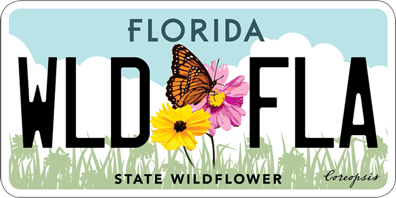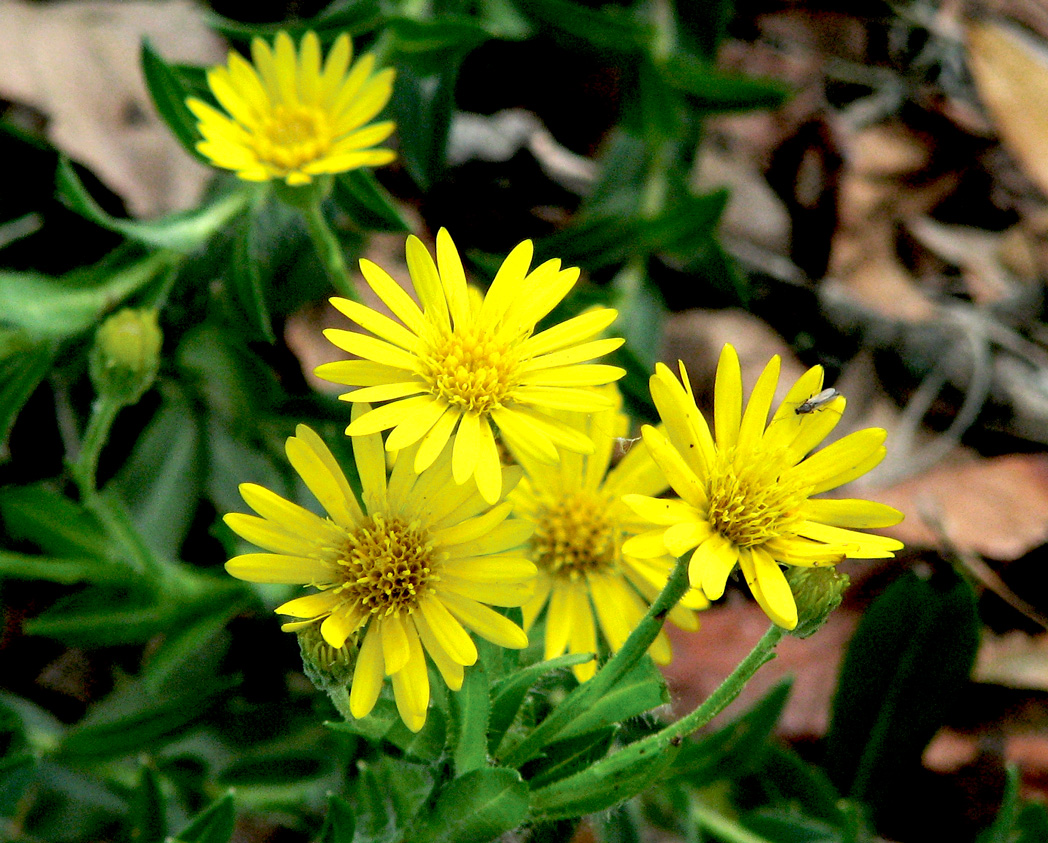Maryland goldenaster
Pictured above: Maryland goldenaster (Chrysopsis mariana) by Peg Urban. Click on terms for botanical definitions. View post as a PDF.
Florida has 11 native Goldenaster species, eight of which are endemic; several are listed by the state as rare or endangered. Maryland goldenaster (Chrysopsis mariana) is found in pinelands, sandhills and sandy roadsides. Native butterflies, as well as a variety of native long-tongued bees — including green metallic, sweat, leafcutter, bumble and mining bees — are attracted to the plant’s nectar. The flowers bloom in spring, summer and fall.
Maryland goldenaster’s yellow daisy-like flowers are born in terminal clusters. The loosely hairy but bright green stem leaves are broadest at the tip and alternately arranged. The fruit is an achene. Plants are compact with many stems.
The genus name Chrysopsis is from the Greek khrusós, or “gold,” and ópsis, or “resembling in appearance.” It refers to the plant’s gold-colored flowers.
Family: Asteraceae (Aster, composite or daisy family)
Native range: Throughout Florida, except the extreme south
To see where natural populations of Maryland goldenaster have been vouchered, visit florida.plantatlas.usf.edu.
Lifespan: Perennial
Hardiness: Zones 8A–9B
Soil: Dry to moist, well-drained sandy soils
Exposure: Full sun to minimal (high pine) shade
Growth habit: 18” tall when flowering
Propagation: Seed (sow in well-drained soil in late fall or winter)
Garden tips: Use Maryland goldenaster in mixed wildflower and bunchgrass settings or in small masses that will attract the eye when in bloom. Its compact shape and tips covered with blooms make it a desirable landscape plant.
Other species: Coastalplain goldenaster (Chrysopsis scabrella) is a biennial species with shaggy-haired foliage and leggy growth. It occurs in the dry sandy soils of sandhills and scrub, and attracts abundant pollinators. The densely hairy, silvery foliage of Florida goldenaster (Chrysopsis floridana), an endangered species found in scrub habitat in only five Central Florida counties, make it a show-stopper. Both species are easy to grow and worthy of a garden setting.
Maryland goldenaster plants are occasionally available from nurseries that specialize in Florida native plants. Visit www.PlantRealFlorida.org to find a nursery in your area.
For more information on other Chrysopsis species, see these resources:

